Thursday, 16 March 2023
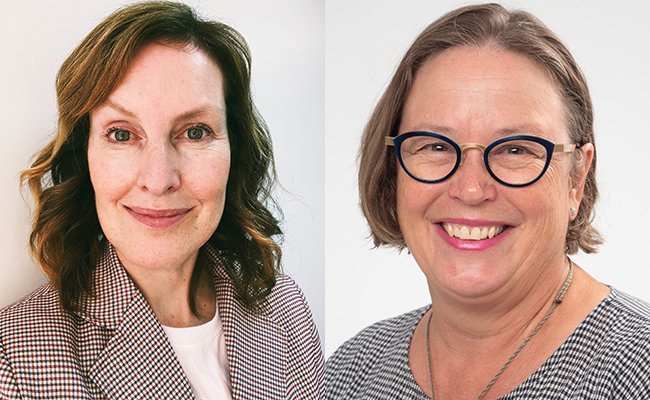
Professor Suetonia Palmer, left, and Professor Lisa Stamp, of the Christchurch campus, are two of four Otago academics elected to be Fellows of the Academy of the Royal Society.
For the first time ever, two of the four Otago academics elected to be Fellows of the Academy of the Royal Society Te Apārangi are from the Christchurch campus.
Professor Suetonia Palmer and Professor Lisa Stamp are both based at the University of Otago, Christchurch, and received this distinction alongside Professor Rachael Taylor and Professor Hallie Buckley who are based at the Dunedin campus.
This award acknowledges the significant contribution an academic has made to their area of expertise by continually working to increase New Zealand's breadth of knowledge and informing its citizens.
“It is fantastic to see Christchurch academics receiving such recognition alongside Dunedin academics for the substantial amount of hard work they have done,” says Professor Suzanne Pitama, the Dean of the Christchurch campus.
“Both Professor Palmer and Professor Stamp are incredibly dedicated to their areas of research and have contributed to their field considerably and consistently.
“They are very deserving of this Fellowship and the rest of the Christchurch campus celebrates alongside them.”
These Fellows will be formally inducted at an event in Wellington on Thursday, 27 April, with more details on their research here:
Professor Suetonia Palmer, University of Otago, Christchurch
Deputy Dean Professor Suetonia Palmer receives her Fellowship for the research she and her team have done on whether treatment plans for people with kidney diseases are safe and effective. This work has drawn on evidence from thousands of studies and trials making the large-scale meta-analysis one of the largest recorded in medical literature.
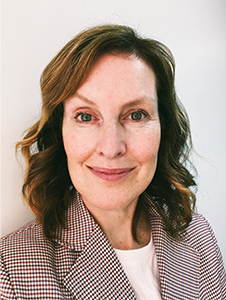
Professor Suetonia Palmer
Various findings from this analysis have been incorporated into World Health Organization guidelines and the global kidney guidelines, giving her research an international impact.
She has also collaborated with Indigenous health academics which resulted in the creation of a 'checklist' which strengthens research conduct by ensuring Indigenous participants are included and that the impact of colonisation on health outcomes is considered for increased equity and social accountability.
Professor Palmer is both “excited and humbled” to be receiving this award and is grateful to see the “mahi and impact of the team has been recognised”.
“I want to extend a deep thank you and aroha to the people who have supported and mentored this mahi through the past two decades,” Professor Palmer says.
“Kidney disease is an invisible condition with few effective therapies and so we need to keep up with the scientific research being done across the globe to ensure we are delivering the best healthcare we can in Aotearoa New Zealand.”
Professor Lisa Stamp, University of Otago, Christchurch
Professor Lisa Stamp is a rheumatologist in the Department of Medicine in Christchurch and is currently leading a research programme on gout.
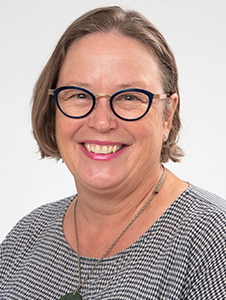
Professor Lisa Stamp
“Gout is a type of arthritis,” Professor Stamp says.
“Our team's research focuses on the individualisation of drug treatments for this condition, particularly in relation to the medication allopurinol, as well as considering the hypersensitivity syndrome that comes with allopurinol use.
“Our research has been translated into clinical practice at both primary and secondary healthcare level, and both our pharmacological and non-pharmacological treatments have been incorporated into international gout management guidelines.”
She is considered a world expert on the subject, with her research also leading to her involvement in the Clinical Pharmacogenetics International Consortium guidelines group and several other national and international collaborations.
Professor Hallie Buckley, University of Otago
Professor Hallie Buckley is based in the School of Biomedical Sciences Department of Anatomy and is a leading bioarchaeologist in the Asia-Pacific region.
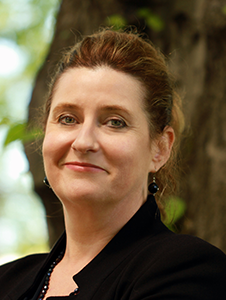
Professor Hallie Buckley
She feels “honoured” to have been elected as a Fellow for the Royal Society Te Aparangi because she believes it has “evolved into a Society all New Zealanders can be proud of”.
Professor Buckley's Fellowship was awarded for her research into the lived experiences of people from the prehistoric Asia Pacific region, an investigation that has transformed how scientists initially conceptualise the biomedical history of the ancestors of modern Polynesians.
She analysed skeletons from early colonists' burial grounds for evidence of disease, health, and diet to draw conclusions regarding the consequences of colonisation and the transition to and intensification of agriculture.
Professor Buckley's has also worked in conjunction with Iwi partners and Government agencies in the identification and repatriation of ancestral remains to mana whenua, “that in some part, may heal the wounds of the past” she says.
“As an undergrad I was fascinated with the stories that old bones could tell of past lives and the work myself, students, and colleagues have undertaken over the years has brought these stories into the present, most importantly for descendant communities.
“The skills I have as a bioarchaeologist in terms of assisting with giving mana back to curated koiwi tangata, and other ancestral remains, by telling their stories, is for me the most important part of my role as an academic.”
Professor Rachael Taylor, University of Otago
Professor Rachael Taylor is the Head of the Department of Medicine and views being awarded this Fellowship as a team achievement and says “this is due to the large number of amazing people” she has worked with.
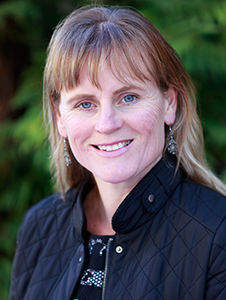
Professor Rachael Taylor
Professor Taylor has made substantial and multiple contributions to childhood obesity knowledge, and has been a key member of the Otago group that was the first in the world to prove that obesity was detrimental to bone health in children.
This new risk factor was incorporated into obesity textbooks and her work on the long-term impact of poor sleep on body fat in children has been pivotal in the inclusion of sleep advice in guidelines for effective weight management in children.
“I am interested in how different aspects of our lifestyle – what we eat, how we're active, how we use our leisure time, and how well we sleep - all play a role in improving health and wellbeing in children,” Professor Taylor says.
“Our research has focused on the role of sleep, which has been really understudied in terms of its contribution to health; quite surprising given we all know how we feel after a good night's sleep versus a bad one.”
She shares how sleep can markedly impact a person's diet and that intervening in this can have a considerable effect on a child's health without even making changes to the diet itself. While encouraging a healthy and balanced diet for tamariki, Professor Taylor believes that these interventions are important in maximising a child's health and that parents are quite receptive to these methods because, “who doesn't want their child to sleep well”.
“Sleep, diet, activity and sedentary time are all related to one another and can impact tamariki's health, self-esteem, schooling, and more.”
Kōrero by the Division of Health Sciences Communications Adviser, Kelsey Schutte.
